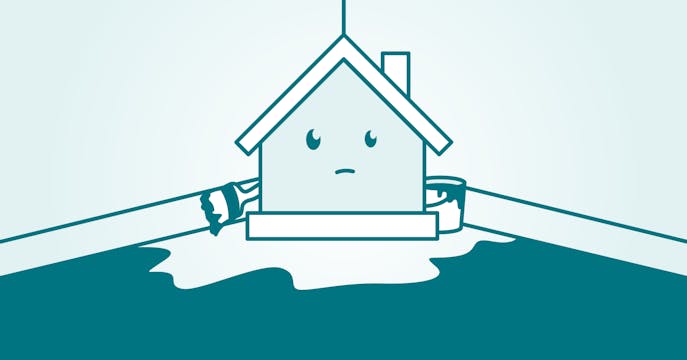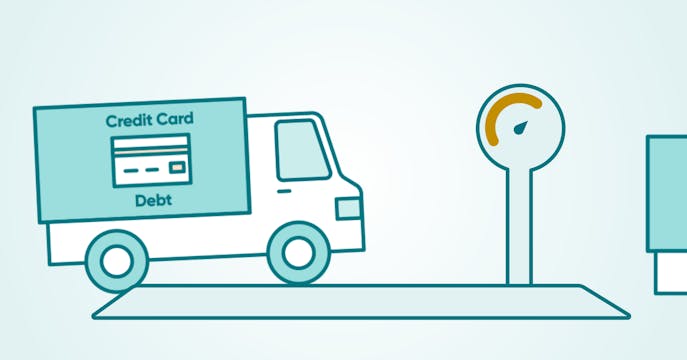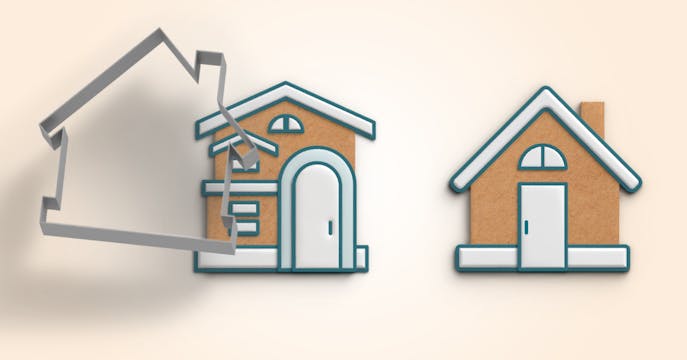With over 2M mortgage renewals coming up in 2024 and 2025 — tighter traditional lender qualifying rules are pushing more homeowners to consider alternative lenders. Our expert brokers can help you choose one with cost-effective renewals to save more.
Lowest Mortgage Rate in Canada. Starting from 2.49%
What's an alternative or B lender?
It's one that offers more flex in mortgage approval criteria compared to a traditional lender.
Every Canadian mortgage situation is unique. Beyond the stiffer scope of a big bank mortgage, you have other options to buy or keep your home.
Mortgage solutions with flex appeal.
Alternative lenders and products have come onto the mortgage scene like the latest fitness craze.
The recent surge in offerings is likely due to higher mortgage rates and home prices, which make it tougher for Canadians to qualify for a home or manage payments.
Traditional mortgages tend to have the strictest qualification requirements, fitting those homeowners who have more straightforward details, like excellent credit and an uncomplicated income source.
However, not every homeowner can reach their qualification 'toes' with a big bank or traditional product.
At True North, we have access to more flexible mortgage solutions to help get your deal done.
What is an alternative lender or product?
An alternative lender (often referred to as a B lender) offers mortgage solutions beyond traditional (A) lending, which typically features one-size-fits-all mortgages structured to tick all the qualification boxes for the lowest risk to the lender.
An alternative lender or product typically brings more flexibility in considering your details, often with more generous criteria in seeing the larger picture or focusing more on home equity as loan security.
Alternative lenders play a crucial role in the Canadian mortgage landscape. More choices for homebuyers and owners can mean finding the right solution to get or keep a home — especially when facing the budget pressures of a higher-rate economy.
What rate can you get with an alternative lender?
Because of the more customized fit and perceived higher risk the lender takes in loaning you the cash, these mortgages typically come with higher rates and fees.
Despite the higher costs, these products can be a lifeline, allowing you time to get back into mortgage shape with a lower-rate product or to be satisfied with a lending solution that fits your unique situation.
Alternative lenders can offer you:
- The opportunity to buy or keep a home if your details are more complex
- A chance to improve credit or income to work your way back to a traditional product and lower rate
- A short-term mortgage solution to solve (or bridge) an immediate situation or need
When might you need an alternative mortgage solution?
Here are some instances where an alternative lender or product may come in handy:
- To consolidate debt and improve credit
- If a bridge loan is needed when selling a home and buying a new one
- If you want to add a second or third mortgage rather than refinance
- If your income sources are considered non-traditional, such as if you're self-employed or mainly earn commissions
- For a divorce, a short-term solution to help transition ownership
- A job move that means you would need to buy a new home before selling your current home
For more scenarios that an alternative solution can help resolve, read our Complex Mortgages Solution page.
Which lenders are considered 'alternative'?
This question isn't as straightforward as it seems. In the past, the term 'alternative' or 'B' lender typically meant lending to clients with credit challenges.
Today, the alternative lender category can refer to any mortgage lender that isn't a Big Six Bank (RBC, TD, Scotiabank, BMO, CIBC, and National Bank), including smaller or regional banks and non-bank lenders.
To make it more confusing, traditional and alternative lenders can offer both A and B products; the latter provides more flexibility to help borrowers with more complex details, including less-than-perfect credit.
Bank lenders: Smaller or regional financial institutions that are as highly regulated as big banks and offer a range of financial services. Because smaller banks compete with the Big Six, they tend to offer more alternative products to serve clients that the big banks won't.
Non-bank lenders: Financial entities that don't hold a banking license but are still regulated federally or provincially and offer specific products, like mortgages and HELOCs. These lenders include credit unions, trust companies, and mortgage finance companies (MFCs), such as our in-house CMHC-approved lender, THINK Financial.
Private lenders are a separate category unto themselves because they're subject to less stringent regulatory oversight.
Do alternative (B) lenders have minimum requirements?
Despite more flexible qualification criteria, to loan you the home cash, alternative lenders will want to see at least:
- A 500 credit score minimum (may vary depending on the lender)
- A 20% down payment
- Home equity of 20% or more (a loan-to-value (LTV) of 80% or lower)
Are private lenders part of the alternative space?
Yes, as alternative lenders go, private is considered a lender of last resort.
Offering mortgage loans using their own capital, private lenders scratch a lending niche itch for those borrowers who often can't find the funding they need through traditional and regulated alternative lenders.
Private lenders can charge even higher rates and fees and may not offer a renewal at the end of your (pricey) term — or your next renewal may come with increasingly higher rates and fees.
They typically lend based on equity and home location only. This category can include some reputable companies, but be wary of individual lenders who may present a bigger risk to your financial plans. For example, they may charge exorbitant rates and fees and then not renew your loan, placing you in a difficult situation to find funding again when the contract is up.
It's important to note here that True North Mortgage can often help those looking for a private lender by finding a customized fit with a regulated alternative lender instead, saving them money and stress.
A 2023 report from the Canadian Mortgage and Housing Corporation (CMHC) showed a marked increase in homeowners choosing alternative lenders — non-bank and private — over traditional lenders as higher interest rates affected qualification.
Can an alternative lender help you qualify despite the mortgage stress test?
Most alternative lenders are required to use the federal stress test (there may be a couple of exceptions depending on your details).
However, non-bank lenders may offer more competitive rates (due to lower overhead), which can help reduce your stress-test rate (a minimum of 5.25% or your rate plus 2.0%, whichever is higher) and improve your affordability numbers.
What does an Alt-A product mean?
Alt-A designates a traditional insured mortgage program aimed at home buyers or owners with less than 20% down payment who are typically self-employed (Business for Self) and have non-traditional income sources or for those who aren't BFS but have more complex income sources to consider.
Because this product is backed by a default insurance provider (and subject to its particular criteria), it's considered low risk to the lender and may come with lower rates than other alternative products.
Alternative products can be a great option for BFS
Being self-employed usually implies income complexities for mortgage qualification, as more earnings are typically kept in the business to help reduce personal taxes. Traditional banks prefer using personal tax returns to qualify for income, but alternative lenders will allow the submission of business bank statements to consider the bigger picture, making it easier for BFS clients to be eligible for more home.
Can you get a mortgage with poor credit?
Yes, it's possible, but it will depend on your situation, the amount of equity in your home, and its location.
You can fill out our form here to see if your details work with the lenders we can access. You can also consider contacting a professional debt advisor with your financial institution for advice on your details.
Come to us for mortgage gain and less pain.
True North Mortgage has the flexibility you need to reach your mortgage goals. Our salaried, highly trained brokers can access several lenders for your best mortgage strategy (in your preferred language) — and help you decide whether you're better off with a traditional, alternative, or private lender or product.
Our friendly, expert brokers know a thing or two about mortgages, and it shows with over 17,0005-star reviews from delighted homeowners.
It's easy to contact us today—online, by phone or email, or by dropping into one of our stores nearby.
Get great advice to help you reach your mortgage goals.
More advice to stretch your savings

Worried about your renewal?
Higher rates painting you into a budget corner? Get help to find a way out.

How does different debt affect your approval?
Have debt? You're not alone. Here's how lenders weigh your debt when approving a mortgage.

Complex Mortgages
Don't fit the mortgage mold? We may have the right solution to help you move on.

